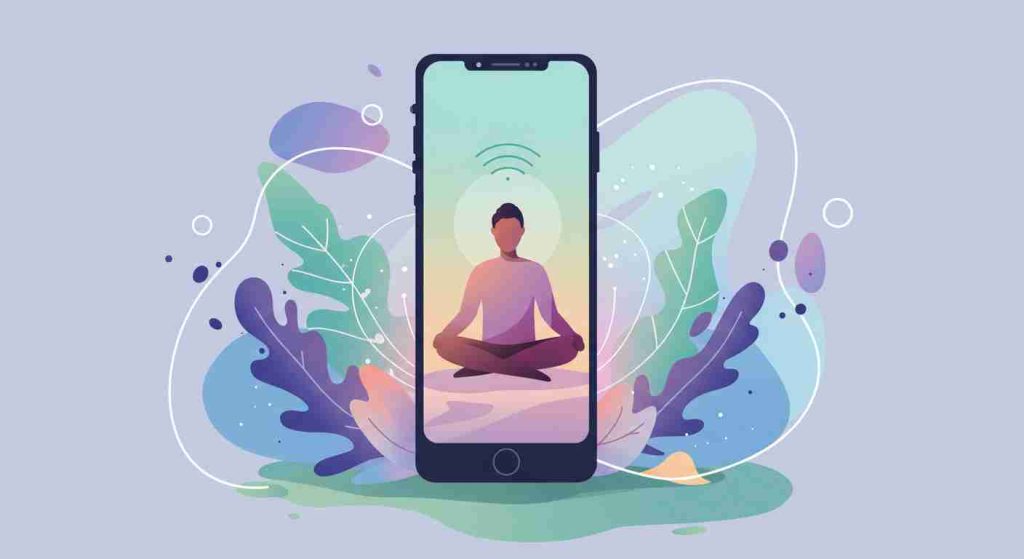Introduction: Mindfulness in the Digital Era
In a fast-paced world characterized by constant notifications, information overload, and a relentless drive for productivity, the pursuit of inner peace can feel elusive. Ironically, the very technology that often contributes to mental fatigue is now being leveraged as a solution. Mindfulness apps—digital platforms designed to cultivate awareness, reduce stress, and improve emotional regulation—have surged in popularity in recent years. These apps have democratized access to mental wellness tools, offering guided meditations, breathing exercises, and mindful reflections right at our fingertips. As mental health challenges escalate globally, mindfulness apps stand as a bridge between ancient practices and modern needs, empowering users to reclaim calm and clarity amid the digital noise.
The Rise of Mindfulness and Mental Wellness
Mindfulness, rooted in Buddhist meditation practices, emphasizes present-moment awareness and non-judgmental observation of thoughts and feelings. Over the past two decades, scientific interest in mindfulness has exploded, with research linking it to reduced anxiety, improved focus, and enhanced emotional resilience. This evidence-based appeal, combined with a growing societal emphasis on mental well-being, has led to an explosion of mindfulness-related content in schools, workplaces, and clinical settings. The COVID-19 pandemic further accelerated this trend, as people turned to mindfulness apps during lockdowns and mental health crises. Today, mindfulness has evolved from a niche interest to a mainstream lifestyle pillar, and apps have played a crucial role in that transformation.
What Are Mindfulness Apps?
Mindfulness apps are mobile or desktop applications that deliver structured practices designed to enhance present-moment awareness. These digital tools typically offer a range of features, including guided meditations, breathing exercises, sleep aids, mood trackers, and gratitude journals. Popular apps like Headspace, Calm, Insight Timer, and Ten Percent Happier have built massive user bases by blending expert-led content with intuitive design and personalization. Many apps cater to specific needs—stress relief, anxiety reduction, improved sleep, focus enhancement, or emotional processing—making mindfulness both accessible and customizable. The convenience of practicing mindfulness anytime, anywhere, has redefined how individuals incorporate inner awareness into daily life.
The Science Behind Digital Mindfulness
Numerous studies support the efficacy of app-based mindfulness interventions. Clinical trials have shown that using mindfulness apps can lead to significant reductions in stress, anxiety, and depressive symptoms, especially when used consistently over time. For instance, a randomized controlled trial published in JMIR Mental Health found that just 10 minutes a day of app-based mindfulness for four weeks significantly improved psychological well-being among users. Another study in PLOS ONE demonstrated that brief, daily use of a mindfulness app enhanced emotional regulation and lowered cortisol levels, the body’s primary stress hormone. While app-based mindfulness may not replace in-person therapy or long-term meditation retreats, it offers a scalable, low-barrier entry point to mental wellness for diverse populations.
Top Features That Drive Engagement
The success of mindfulness apps is largely due to their user-centric features. Most platforms begin with an onboarding quiz to tailor content to individual goals—be it calming anxiety, improving sleep, or cultivating gratitude. Daily reminders and progress tracking help build consistency, while gamified elements like streaks, badges, and milestones reinforce engagement. Audio meditations guided by trained professionals make it easy for beginners to get started, and many apps include options for silent meditation or ambient soundscapes for more advanced users. Sleep-focused content such as bedtime stories and calming music addresses widespread insomnia. Moreover, many apps integrate cognitive behavioral techniques, positive psychology, and neuroscientific insights, enhancing their therapeutic value.
Who Are the Users?
Mindfulness apps attract a diverse audience: busy professionals, students, parents, caregivers, athletes, and even children. For corporate users, mindfulness apps are a practical tool to combat burnout and improve productivity. For students, these apps provide a refuge from academic pressures and social media stress. Parents use them to teach mindfulness to their children or to carve out moments of calm in a chaotic household. Some apps cater specifically to marginalized communities, offering content that reflects cultural sensitivities and inclusive narratives. This diversity in design and audience underscores the versatility and reach of digital mindfulness, making it a universal tool for mental well-being.
Benefits Beyond Stress Reduction
While stress reduction is the most cited benefit of mindfulness apps, their impact extends much further. Regular practice enhances attention span, supports emotional intelligence, and fosters better decision-making. For individuals with chronic illnesses, mindfulness apps can improve quality of life by promoting self-compassion and reducing pain perception. Athletes use them to cultivate focus and manage performance anxiety, while creatives turn to mindfulness to enhance intuition and overcome mental blocks. Additionally, features like gratitude journaling and intention-setting nurture a more optimistic and resilient mindset. These wide-ranging benefits make mindfulness apps not only tools for managing distress but also vehicles for cultivating positive mental health.

Criticisms and Limitations
Despite their popularity, mindfulness apps are not without criticism. Some mental health professionals caution against the over-commercialization of mindfulness, arguing that apps may dilute the depth and spiritual foundation of traditional practices. Others point out that while apps are convenient, they often lack the personalized feedback and therapeutic nuance of in-person mindfulness instruction. There’s also concern about “McMindfulness”—the idea that mindfulness is being used as a quick fix for deeper societal issues like workplace exploitation or social inequality, without addressing root causes. Furthermore, user adherence can be a challenge, with many downloading apps but failing to maintain regular practice. Developers are addressing these concerns by collaborating with clinical psychologists, including trauma-sensitive content, and enhancing user retention features.
Mindfulness in Healthcare Settings
Healthcare providers are increasingly recognizing the value of mindfulness apps as part of integrated care. Some hospitals and clinics recommend apps to patients with anxiety, depression, chronic pain, or insomnia as a complement to conventional treatment. Insurance companies are beginning to cover app subscriptions under wellness programs, acknowledging their preventive value. Mental health professionals may incorporate app-based exercises into therapy sessions to reinforce techniques between visits. In these contexts, apps serve as accessible tools for psychoeducation, self-monitoring, and emotional regulation, especially for individuals with limited access to in-person services.
The Future of Mindfulness Technology
The future of mindfulness apps lies in deeper personalization, interactivity, and integration with emerging technologies. Advances in artificial intelligence are enabling adaptive meditation experiences that respond to user mood, environment, or biometric data from wearables. Virtual and augmented reality platforms are beginning to offer immersive mindfulness environments—such as meditating on a virtual mountaintop or forest glade—which enhance sensory engagement and emotional connection. Developers are also exploring AI-guided emotional coaching and social features that create supportive mindfulness communities within apps. As these technologies mature, the distinction between digital and embodied mindfulness may become increasingly fluid, offering users richer and more holistic experiences.
Tips for Choosing the Right App
With hundreds of mindfulness apps available, finding the right one can be overwhelming. Users should consider several factors: the qualifications of content creators, evidence-based design, user reviews, privacy policies, and ease of navigation. It’s also helpful to reflect on personal goals—is the app intended for stress relief, focus, sleep, or emotional healing? Free trials and basic versions can be a good starting point before committing to premium subscriptions. For beginners, apps with structured programs and simple interfaces are ideal. For more experienced practitioners, platforms that offer silent timers, advanced courses, or community forums may be more appealing. Ultimately, the most effective app is one that fits seamlessly into the user’s lifestyle and supports consistent practice.
Integrating Mindfulness Apps into Daily Life
The power of mindfulness apps lies not just in their content but in how users engage with them. A few minutes of daily practice, even in the midst of a hectic schedule, can create profound shifts over time. Morning meditations can set the tone for the day, midday breathing exercises can reduce work-related stress, and evening reflections can enhance sleep quality. Pairing app use with daily routines—like brushing teeth or commuting—helps form lasting habits. Additionally, users should be encouraged to apply mindfulness informally throughout the day, noticing thoughts and sensations without judgment, even without opening the app. In this way, technology becomes a gateway to embodied presence, rather than a distraction from it.
Conclusion: A New Frontier in Mental Wellness
Mindfulness apps represent a remarkable fusion of ancient wisdom and digital innovation. They meet modern users where they are—on their phones—and offer a scalable, affordable path to mental clarity and emotional resilience. While not a panacea, they empower individuals to take ownership of their mental health and cultivate inner peace in a chaotic world. As research continues to validate their effectiveness and technology enhances their capabilities, mindfulness apps are poised to remain essential tools in the mental wellness landscape. In the end, these digital companions remind us that even amidst the buzz of modern life, stillness is always just a breath away.







































